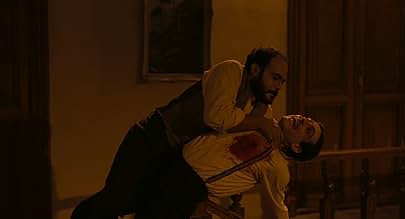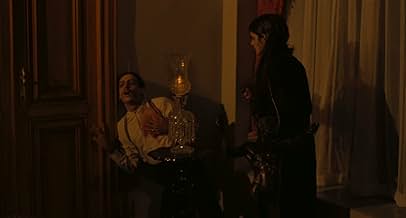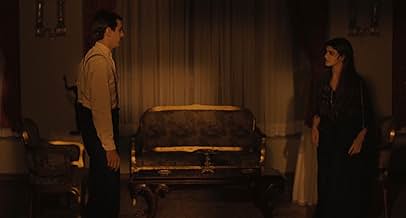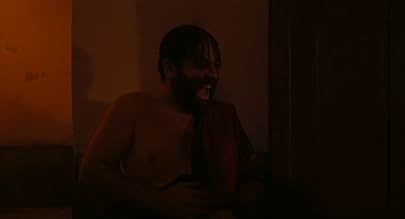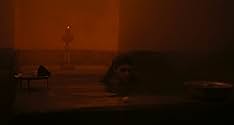CALIFICACIÓN DE IMDb
7.3/10
1.9 k
TU CALIFICACIÓN
Agrega una trama en tu idiomaThe first lady of a noble house has died and now there is conflict between the remainders for taking over her inheritance.The first lady of a noble house has died and now there is conflict between the remainders for taking over her inheritance.The first lady of a noble house has died and now there is conflict between the remainders for taking over her inheritance.
- Premios
- 1 nominación en total
- Dirección
- Guionista
- Todo el elenco y el equipo
- Producción, taquilla y más en IMDbPro
Argumento
¿Sabías que…?
- TriviaThe film was banned in Iran in 1979 by the then new regime and presumed lost, only to be found years later by the director's children in a junk shop. It has been painstakingly restored and was shown at the BFI London film festival in 2020.
- ConexionesFeatured in CBS News Sunday Morning: Episode #45.25 (2023)
Opinión destacada
A lot of films from the Middle East have had a history of being banned often. There are many examples of lost movies which went largely unseen as few titles have maintained a cult status without proper distribution. Here we have a forgotten masterpiece of Iran's pre-revolution New Wave which belongs to the list of lost and found title. Director Mohammad Reza Aslani's Chess of the Wind/The Chess Game of the Wind (Shatranj-e Baad) was banned by the Ayatollah Khomeini regime in 1979 and it ended up on the shelf in an antique shop until its discovery in 2015. I don't want to go in any further about the rediscovery and restoration process. I suggest you to look it up as it is a very interesting read. Same time, i really want to thank Shirin Neshati for introducing this film. I want to appreciate and thank Martin Scorsese's World Cinema Project and Cineteca di Bologna for restoring this neglected masterpiece.
Coming to the story, it takes place during the reign of the Qajar dynasty, with the passing of a rich matriarch the battle for inheritance begins between the members of the family. The story unfolds like a arthouse drama with full of captious characters as the moral dimension is constantly changing in the gothic mansion to inherit the wealth. The main characters: Aghdas, a wheelchair-bound disabled daughter of the deceased. She is taken care by a young maid servant (Shohreh Aghdashloo) who devotes herself to cater to all the needs and wants of Aghdas. In later part of the film, we see both of them sympathize with each other and it hints that their relationship becomes intimate. The sequence is brilliantly shot, with amorous flush of hand gestures. It is not sexual or explicit but sensuous at times accentuated by the alluring score. We also have the evil stepfather Hadji and his nephews in the race for the "suitors" of the fortune. With arrival of few more characters as the the divide widens, triggering the gears of greed which leads to an amazing climax that will cement this film as a genre-hopping masterpiece. This family chronicle does not function as a typical story would. Rather, the structure is different as the director infuses every frame with paranoia, even the set pieces, antique furniture's in the mansion feel like its haunted. A hypnotic score by Sheida Gharachedaghi only adds to the film's sensory layers, by turns dark and discordant. I loved the dance sequence accompanied by a young girl wearing a red traditional dress and you know Kate Bush's Wuthering Heights vibes are strong. Even the climax, it looks mad in the restored version. I Immediately thought of Anna von Hausswolff's album cover for Dead Magic.
I know the reviews online have praised this as a tribute to Sergei Parajanov, Luchino Visconti, Luigi Bazzoni and Henri-Georges Clouzot. But for me this is a mix between Juraj Herz's Morgiana (1972) and Sergio Martino's Your Vice Is a Locked Room and Only I Have the Key (1972) with a strong Messiah of Evil (1973), Josep Losey's The Servant (1963) and Giallo influence. I recommend this to everyone to watch this atleast once, the restored version is an experience not to be missed. Although it will fly over many people's heads as it is really a test of patience, but it's worth it in the end.
Coming to the story, it takes place during the reign of the Qajar dynasty, with the passing of a rich matriarch the battle for inheritance begins between the members of the family. The story unfolds like a arthouse drama with full of captious characters as the moral dimension is constantly changing in the gothic mansion to inherit the wealth. The main characters: Aghdas, a wheelchair-bound disabled daughter of the deceased. She is taken care by a young maid servant (Shohreh Aghdashloo) who devotes herself to cater to all the needs and wants of Aghdas. In later part of the film, we see both of them sympathize with each other and it hints that their relationship becomes intimate. The sequence is brilliantly shot, with amorous flush of hand gestures. It is not sexual or explicit but sensuous at times accentuated by the alluring score. We also have the evil stepfather Hadji and his nephews in the race for the "suitors" of the fortune. With arrival of few more characters as the the divide widens, triggering the gears of greed which leads to an amazing climax that will cement this film as a genre-hopping masterpiece. This family chronicle does not function as a typical story would. Rather, the structure is different as the director infuses every frame with paranoia, even the set pieces, antique furniture's in the mansion feel like its haunted. A hypnotic score by Sheida Gharachedaghi only adds to the film's sensory layers, by turns dark and discordant. I loved the dance sequence accompanied by a young girl wearing a red traditional dress and you know Kate Bush's Wuthering Heights vibes are strong. Even the climax, it looks mad in the restored version. I Immediately thought of Anna von Hausswolff's album cover for Dead Magic.
I know the reviews online have praised this as a tribute to Sergei Parajanov, Luchino Visconti, Luigi Bazzoni and Henri-Georges Clouzot. But for me this is a mix between Juraj Herz's Morgiana (1972) and Sergio Martino's Your Vice Is a Locked Room and Only I Have the Key (1972) with a strong Messiah of Evil (1973), Josep Losey's The Servant (1963) and Giallo influence. I recommend this to everyone to watch this atleast once, the restored version is an experience not to be missed. Although it will fly over many people's heads as it is really a test of patience, but it's worth it in the end.
- samxxxul
- 20 ene 2022
- Enlace permanente
Selecciones populares
Inicia sesión para calificar y agrega a la lista de videos para obtener recomendaciones personalizadas
- How long is Chess of the Wind?Con tecnología de Alexa
Detalles
Contribuir a esta página
Sugiere una edición o agrega el contenido que falta

Principales brechas de datos
By what name was Shatranj-e baad (1976) officially released in India in English?
Responda

